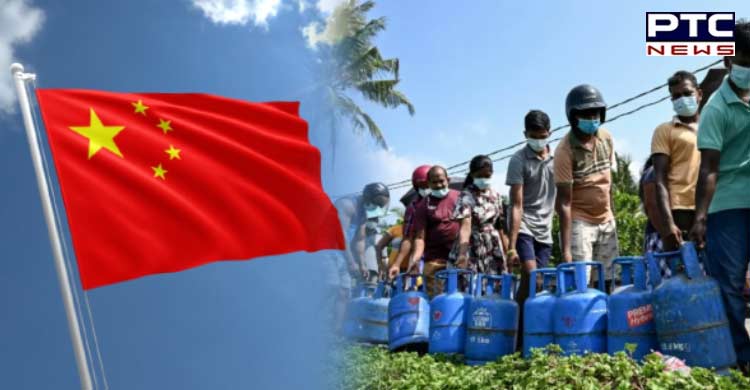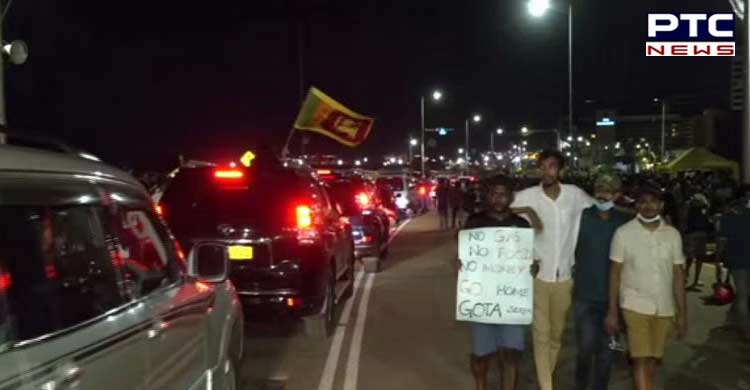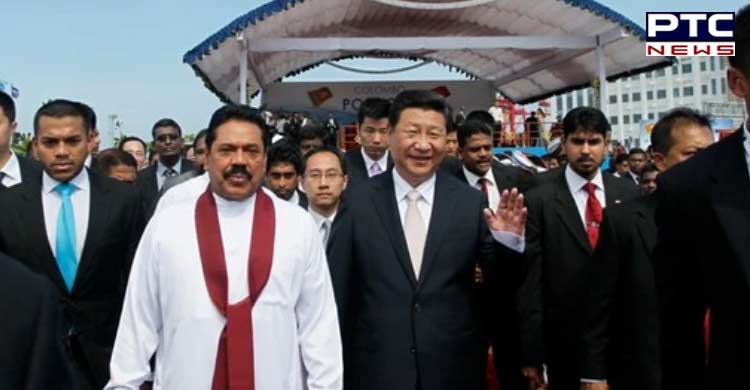

China's 'debt-trap diplomacy' behind economic crisis in Sri Lanka: Report
Colombo (Sri Lanka), April 17: As Sri Lanka is battling its worst economic crisis since independence with food and fuel shortages, soaring prices and power cuts, many believe that China's "debt-trap diplomacy" is behind the severe crisis, said a media report.
 Writing in Channel News Asia (CNA), R Ramakumar, a Professor of Economics at Tata Institute of Social Sciences, emphasised that China's "debt-trap" policy is to blame for the serious economic situation of Sri Lanka. "Many believe that Sri Lanka's economic relations with China are the main driver behind the crisis. The United States has called this phenomenon debt-trap diplomacy," the report added.
It further said that this is where a creditor country or institution extends debt to a borrowing nation to increase the lender's political leverage - if the borrower extends itself and cannot pay the money back, they are at the creditor's mercy.
Defaults on China's infrastructure loans to Sri Lanka, particularly the financing of the Hambantota port, have been highlighted as contributing factors to the crisis, according to the report.
Writing in Channel News Asia (CNA), R Ramakumar, a Professor of Economics at Tata Institute of Social Sciences, emphasised that China's "debt-trap" policy is to blame for the serious economic situation of Sri Lanka. "Many believe that Sri Lanka's economic relations with China are the main driver behind the crisis. The United States has called this phenomenon debt-trap diplomacy," the report added.
It further said that this is where a creditor country or institution extends debt to a borrowing nation to increase the lender's political leverage - if the borrower extends itself and cannot pay the money back, they are at the creditor's mercy.
Defaults on China's infrastructure loans to Sri Lanka, particularly the financing of the Hambantota port, have been highlighted as contributing factors to the crisis, according to the report.
 The Chinese Exim Bank financed the construction of the Hambantota port. The port was making a loss, so Sri Lanka leased it to the Chinese Merchant's Group for 99 years at USD 1.12 billion, according to the report.
Also Read | Noida police on alert after Delhi's Jahangirpuri violence; several injured
Many important commodities, including fuel, food and medicines, are imported into the island. Most countries will maintain foreign currencies on hand to trade for these commodities, but Ramakumar blamed the "sky-high prices" on a lack of foreign exchange in Sri Lanka.
Sri Lankan President Gotabaya Rajapaksa announced a state of emergency on April 1st, which was lifted within a week due to widespread public outrage at the government's handling of the crisis.
The Chinese Exim Bank financed the construction of the Hambantota port. The port was making a loss, so Sri Lanka leased it to the Chinese Merchant's Group for 99 years at USD 1.12 billion, according to the report.
Also Read | Noida police on alert after Delhi's Jahangirpuri violence; several injured
Many important commodities, including fuel, food and medicines, are imported into the island. Most countries will maintain foreign currencies on hand to trade for these commodities, but Ramakumar blamed the "sky-high prices" on a lack of foreign exchange in Sri Lanka.
Sri Lankan President Gotabaya Rajapaksa announced a state of emergency on April 1st, which was lifted within a week due to widespread public outrage at the government's handling of the crisis.
 Sri Lanka is in the midst of its worst economic crisis since its 1948 independence from British rule. Currency shortages related to the travel ban imposed during the Covid-19 epidemic are being blamed for the fall. As a result, the country has been unable to obtain sufficient fuel, resulting in a severe shortage of food and essential commodities like heating fuel and gas.
According to the United Nations Development Programme, Sri Lanka appears to be on the verge of a "humanitarian crisis," as its money woes intensify, with soaring food prices and the country's coffers running dry. According to World Bank estimates, five lakh people in Sri Lanka have slipped into poverty since the crisis began.
Sri Lanka is in the midst of its worst economic crisis since its 1948 independence from British rule. Currency shortages related to the travel ban imposed during the Covid-19 epidemic are being blamed for the fall. As a result, the country has been unable to obtain sufficient fuel, resulting in a severe shortage of food and essential commodities like heating fuel and gas.
According to the United Nations Development Programme, Sri Lanka appears to be on the verge of a "humanitarian crisis," as its money woes intensify, with soaring food prices and the country's coffers running dry. According to World Bank estimates, five lakh people in Sri Lanka have slipped into poverty since the crisis began.
 Also Read | UK PM Boris Johnson to visit India next week; Indo-Pacific security, jobs on agenda
-PTC News
Also Read | UK PM Boris Johnson to visit India next week; Indo-Pacific security, jobs on agenda
-PTC News
